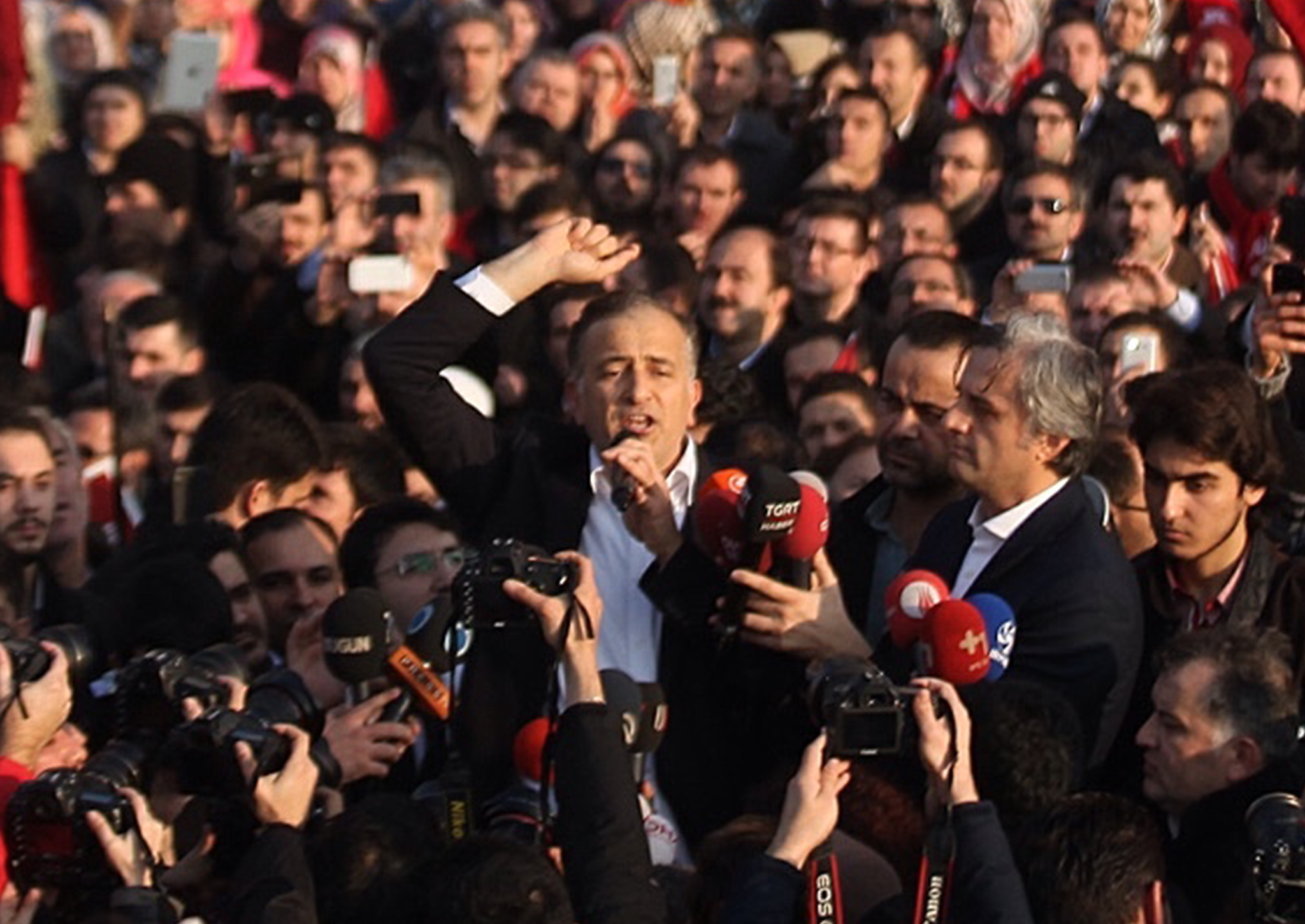Voices in Danger: Turkey's attack on press freedom
Dozens of journalists have been arrested across the country, including the prominent editor-in-chief Ekrem Dumanli

Your support helps us to tell the story
From reproductive rights to climate change to Big Tech, The Independent is on the ground when the story is developing. Whether it's investigating the financials of Elon Musk's pro-Trump PAC or producing our latest documentary, 'The A Word', which shines a light on the American women fighting for reproductive rights, we know how important it is to parse out the facts from the messaging.
At such a critical moment in US history, we need reporters on the ground. Your donation allows us to keep sending journalists to speak to both sides of the story.
The Independent is trusted by Americans across the entire political spectrum. And unlike many other quality news outlets, we choose not to lock Americans out of our reporting and analysis with paywalls. We believe quality journalism should be available to everyone, paid for by those who can afford it.
Your support makes all the difference.In what has been termed a “witch hunt of the press”, Ekrem Dumanli, the editor-in-chief of Turkey's daily newspaper Zaman, was arrested in December. He was the first to be detained, but was soon joined by Hidayet Karaca, the head of the Samanyolu Broadcast Group (STV), and over two dozen other media workers across Turkey.
Turkish authorities raided the Zaman offices in Istanbul in the early hours, in what was to be the first round up of key personnel at media outlets across the country. The high profile Editor took solace from cheering supporters chanting “press freedom!” as police officers escorted him into custody.
He was held in solitary confinement at the police station for 80 hours, the maximum time allowable under Turkish law. Prosecutors eventually took Dumanli's statement at the police station, an irregular procedure, under what he described as a “shadow of guns”.
“I had a feeling that something like this would happen,” Dumanli said. “I had received numerous threats via social media trolls, Twitter accounts, Internet sites and even columns published in various papers. The head of state previously said they would start a witch hunt.”
Authorities eventually transferred Dumanli to the courthouse, where he was once again placed in solitary confinement for a further 40 hours. He described his living conditions: “The cell I was in at the courthouse was located seven floors below the ground. It was cold, there were no beds, I only had a blanket to cover myself.”
Dumanli felt that the “operation of intimidation” had a purpose: “They used all these options to ensure that I break down and experience sleep deprivation because there was no sunshine there. The lights were on all the time so that the officers could see us. It was not possible for me to distinguish between day and night.”
The 120 hour ordeal continued when prosecutors charged the Editor with establishing and leading a terrorist organisation based on two columns and one news article published in Zaman. Despite two different judges throwing the case out of court for lack of evidence and ordering his release, Dumanli believes that, “The prosecutor’s office will do its best to prosecute me.”
He was eager to join his wife who, he was told, had given birth to their daughter while he was locked up but the sweet taste of freedom was short lived. “On the way to the hospital to see my newborn, someone called me and threatened me in cold blood. I told him I would not be intimidated by such threats and that I would keep expressing my views until I die. I then hung up.” Dumanli continues to receive “cold blooded” threats via digital media.
“Unfortunately, it is not only me who is under threat, but all those who do not support the government,” Dumanli said. “Journalism [in Turkey] has made significant progress...where journalists remain silent, democracy is suspended, freedom of expression is suspended and freedom of thought is suspended. I believe that no matter where we are, we should find a way to preserve freedom of expression,” he said.
“Once again, President Erdoğan has shown he will embrace extreme measures to silence dissident voices. He believes in a compliant press, not a free press,” said Committee to Protect Journalists' (CPJ) Board Chairman Sandra Mims Rowe. “The people of Turkey deserve better.”
A senior level Prime Ministry official for Turkey issued the this statement: “The press enjoys the full protection of the law in exercising their constitutional rights and freedoms whilst investigating public interest issues and others. Obviously, however, there are certain limits to journalistic immunity – particularly when individuals practicing journalism become involved in illicit activities.”
The senior level official's statement also specified: “What occurred on 14 December was not a raid targeting Zaman daily newspaper. The police officers who arrived at the Zaman offices that day were following standard protocol and acting on a court order pertaining to Mr. Dumanli's alleged involvement in organised crime – more specifically a shadow state. The court order was issued in light of a complaint by a Mehmet Dogan and 122 others who claim that the Gülenist shadow state was responsible for their 17-month pre-trial detention between 2009 and 2011.”
According to CPJ, the then Prime Minister Erdoğan targeted critical journalists and news outlets branding Turkey the “leading jailer of journalists” in 2013. Now the President of Turkey, Erdoğan displays “paranoia”, according to CPJ.
Join our commenting forum
Join thought-provoking conversations, follow other Independent readers and see their replies
Comments